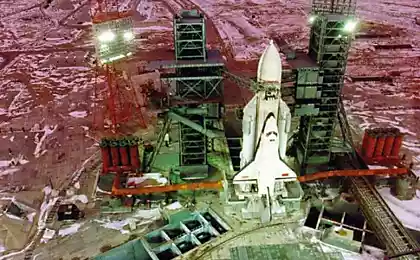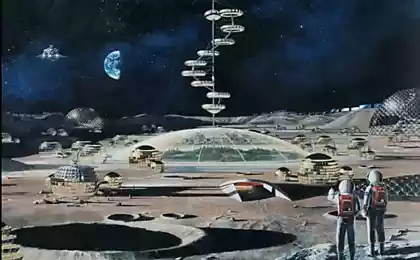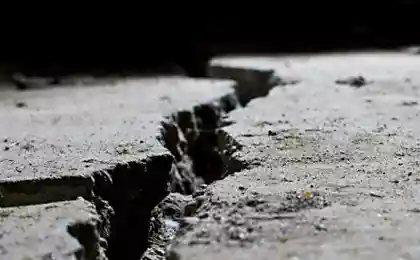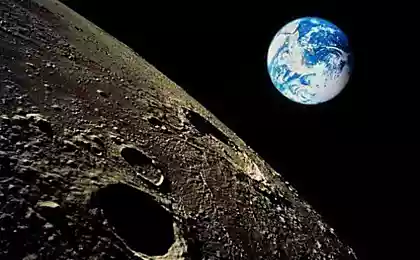715
Tough choice NASA: mission to Mars or back to the moon

The development of the Solar system, according to many experts, it is necessary to all mankind. Elon Musk, for example, believes that without a Foundation Outpost on another planet, our civilization cannot survive. The colony of people on Mars is, in his opinion, will serve as backup for humanity, which will continue to live and work, even if on Earth there is a disaster that will destroy the entire population or most of it.
But going to Mars is not easy even for a small team of astronauts. But if we are talking about a colony, the task becomes completely unaffordable. The key word here is "almost" because a number of experts believe that a colony on Mars is still not a fantasy but a reality, already available with the current level of technology. However, some scientists, engineers and other specialists believe that people would be better on the moon, not on Mars.
In NASA about it for a long time is debatable, and Agency staff are divided into two camps: those that believe that people need to fly to Mars and those who believe that a second home can become the Moon, to go where much easier. And after the exploration of the moon, you can think about Mars. In this post, the arguments "for" and "against" development as the moon and Mars. The choice of NASA employees, apparently, will determine the future of humanity.
Why Mars?
Representatives of aerospace applications rarely all agree with each other. But the fact that the Mars — a test for technology and the will of mankind, agree on almost everything. Red planet is considered a new beginning for people that need to be overcome before moving on. And Mars, in spite of the excellent from the Earth conditions, nevertheless a more suitable place for life than, for example, open space. Here is the atmosphere, although much less dense than on Earth. There is a lot of water in the form of ice (and maybe somewhere stored underground reservoirs of liquid water).

Only NASA has now three main reasons to fly to Mars (not just to fly, and managed to implement a human mission with landing on the surface). The first is to show the possibilities of a country like the United States. Every country wants to Excel in the field of aerospace, and America is no exception.
The second reason is colonization. This has already been discussed above and Geektimes of colonization published great stuff. The main supporter of the colonization of Mars can be considered to be Elon musk. NASA is a bit different mood — any expedition to Mars, the Agency plans with the expectation to return the astronauts home.
The third reason is science. The search for life, study of conditions on other planets is a very important task. Over the last few years people have learned about the Solar system and its facilities very much. People flew to Pluto, got to the asteroid belt, landed (though not personally) on the comet Churyumov-Gerasimenko.
"Mars, 3.8 billion years ago was a good place. There was liquid water on the tops of mountains was snow, on Mars flowing river. Mars was a good place. Then began the development of life on Earth. And all the ingredients were on Mars. If life appeared here, could be the same on the red planet? If so, could the microbes to live there now?" says John Grunsfeld (John Grunsfeld), American physicist and astronaut. He has participated in five space missions, served as Director of scientific programs of NASA.
According to several academic experts, the results of a study of the environs of Gale crater raises several questions that need to be clarified. For example, last summer, the Rover Curiosity found in an area of high concentration of methane. This gas can be either a consequence of what is happening in the depth of geophysical phenomena, or to appear as a by-product of microorganisms.
All the same Grunsfeld believes that the issue of a flight to Mars is doable with current means and capabilities of the person. Finances are not the most important question, because the budget of this mission will be quite lifting even for a single economically developed country.
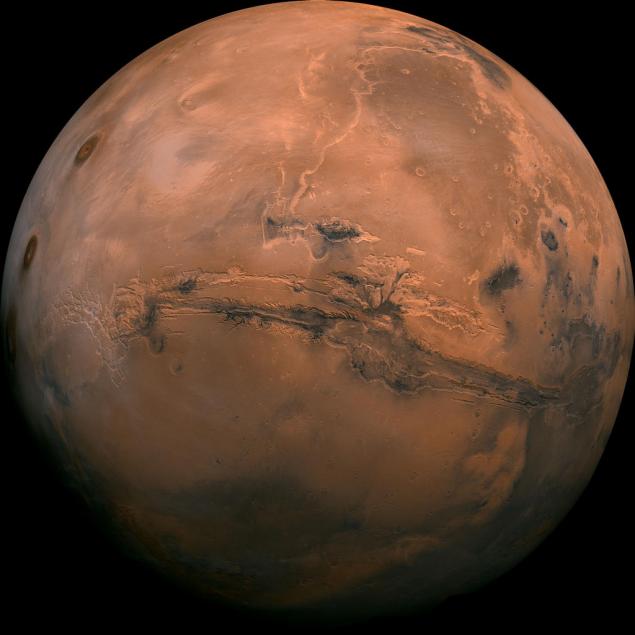
As mentioned above, the project of founding a colony, or even of manned flight to Mars there are opponents. They too have arguments, and quite rational.
Why not go to Mars?
A number of scientists and politicians believe that a man on Mars to do nothing. All flights will require a huge amount of resources, but any return of the resource in the same respect a man gets many more decades. Much more rational, according to opponents of Mars, now to solve important problems on Earth and to develop commercial cosmonautics.
The same opinion and members of Congress (it is Congress allocates money to NASA). Congressmen the results of space programs need here and now. By the way, Obama is a supporter point of view. Even more "mundane" (not literally) the opponent of a flight to Mars is the newly elected President of the trump. According to him, it is more important to solve the current problems, and not to reach for the pie in the sky.
Even those politicians who supposedly are committed to the resettlement of people on Mars in most cases, earn political capital. The colonization of Mars is a business for many decades, and current politicians, in case of failure of the idea with the colonies, can no longer be accused of something — the majority will either be gone by the time of the policy, or withdraws from life.
The main objection of the opponents of the mission to Mars — the complexity of maintaining the colony. Their resources will be almost there. If the water "Martians" will be able to produce (and that is questionable), metals, plastics, and many other resources will be imported from Earth. Delivery shortages can very adversely affect the work of the colony, under the threat may be posed to human life.
Why The Moon?
Unlike Mars, the Moon is closer to Earth. Okay, it's easier and cheaper to get. However, the last man was on the moon 44 years ago, since then, manned missions was not. And here's the paradox — after a man on the moon, many ordinary people and politicians believe that this top was already taken, and again not worth it. As for politicians, many of them understand that the return to the natural satellite of the Earth much political capital does not earn.
However, it is important not only the opinion of politicians. The fact that the moon supposedly has a large number of valuable human resources. For example, helium-3, which are actively interested in the same Chinese. And delivery of resources from the moon much more realistic option than getting resources from Mars (now it's practically impossible).
The duration of the flight to the moon is about three days, and "Windows" for departure to the natural satellite of the Earth much more than to Mars. To plan expeditions to the moon for this reason it is easier, and you can fly is not an example more often than to the red planet.
With almost 100% probability we can assert that the moon has no life. But there is water that will be available to the colonists. Water ice hiding in craters and other places where no sunlight, causing the ice sublimates. So and water the astronauts will have no problems.
The moon and the scientific value is great. The study of it can shed light on the origin of the moon and Earth and the entire Solar system. Here you can found an Outpost of humanity, where it will be possible to send spacecraft to other planets. A number of scientists I am sure that you will first need to master the moon, and then Mars, and red planet will be possible to fly straight on already explored the moon. The energy here is gratuitous — the sun's rays illuminate a huge area without interruptions. If you establish a colony on the moon, the person will be able to learn it very fast by automatic systems of various types. Water ice here a lot, so you can get fuel for rockets (hydrogen and oxygen).
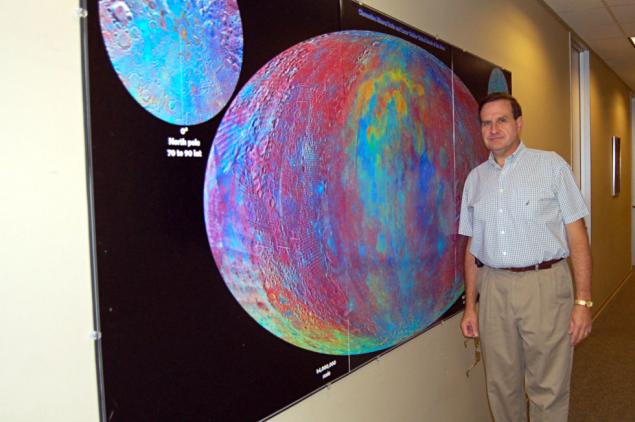
Paul Spudis, a supporter of the return of the man on the moon
NASA has even developed a 16-year program of lunar exploration. First flight, according to the authors, to be held 12 years after the start of the project. Then start regular flights to the satellite of the Earth. The total cost of the project is $87.7 billion in 16 years, according to the initiators, on the moon there will be a colony "Lomonosov", which will produce about 300 cubic meters of water per year. The water will be used for the needs of the colony and for the production of fuel.
And there is a ten-year program of colonization of the moon which is called Lunar Oasis. Under this program, equipment and people to deliver on the road in 30 flights. One manned rocket, on average, can deliver about 14 tons of cargo. If you send to the moon, unmanned vehicles, payload increases to 20 tons. Ten, according to the plan, on the moon you can send about 600 tons of cargo.

The final stage of this program is to deliver to the moon bouncy homes for ten people, which astronauts will use. The walls of the residential module is to be filled with hydrogen, which is easy to extract from the lunar regolith. The cost of this program is several times higher than the price of the previous one and is about $550 billion.
The building is planned to do either an inflatable, or to build them using lunar soil. There is a proposal to equip a dwelling for the person in any cavities in the lunar surface or even in the crater.
The exploration of the moon now most actively engage the Chinese, who are anxious to establish a colony first. It is clear that the United States will try to prevent such a scenario.
Maybe not on the moon?
It is clear that the project of colonization of Earth's satellite, there are opponents. First, not all scientists believe that the moon as much ice as you see some experts. In addition, it is extremely uncomfortable — huge extremes of temperature, no atmosphere, that's all.
"Even if whole blocks of ice are placed under a thin layer of the lunar regolith, how are you going to the ice to extract? It is unlikely this will be done using shovels," says one of the opponents of this point of view. But the slightest mistake, interruption in supply of energy — and the astronauts can just freeze, or suffer the infrastructure of the colony. To restore all this would be very difficult.
The cost of establishing a factory for the production of rocket fuel will be very high — it's not easy to do and even with the availability of the required funds the establishment of such a facility — it is not one year.
Plus, health lunar colonists would threaten the very fine moon dust. Small particles of this dust is very dangerous because their size is only few tens of nanometers. Dust of this size can go directly into the bloodstream. Dust larger factions will settle in the lungs. And if the astronaut is to live on the moon long enough, he could face silicosis (miners) or something like that.
Can we go somewhere else?
Yes, it is a reasonable option. Employee NASA planetary scientist Amanda Hendrix (Amanda R. Hendrix) and her colleagues believe that almost perfect place where the person will live on the surface, can become a Titan. Despite the fact that the conditions here are not too suitable for man, Titan is rich in hydrocarbons and other elements that would provide the colonists with everything necessary. Plus, on Titan — natural protection from radiation, which is not neither on the moon nor on Mars. Hydrocarbons are everywhere, all the surface of Saturn is covered with them, so I get it no need. And here too there is water ice in large quantities.
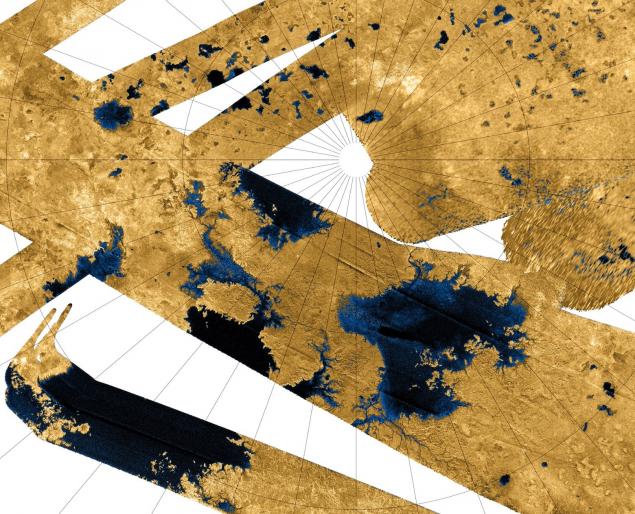
Of course, here not to do without problems. To get to the Titan even longer than that to Mars. The trip will take about seven years. So the implementation of the idea of creating colonies on Titan in the far future.
Anyway, most scientists agree that sooner or later will create an Outpost of civilization on one of the planets or planetoids of the Solar system. So the question is not likely whether the person base somewhere else besides Earth, but when this becomes a reality.
Source: geektimes.ru/post/284050/
Artist turns bananas into fun sculptures
"Diet one palm": how to determine the size of the portions for proper nutrition


